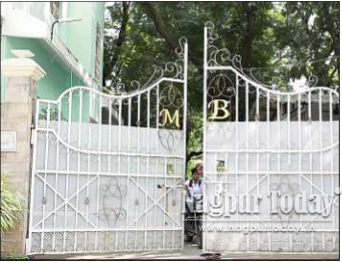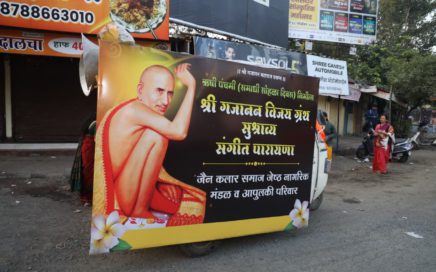
Nagpur: In a landmark moment for communal harmony, the Maharashtra State Minorities Commission has successfully brokered peace between the two breakaway Shia Dawoodi Jamaats, Chimthanawala and Mahdi Bagh in Nagpur, bringing an end to one of India’s longest-running sectarian and property disputes that lasted for over 125 years.
The breakthrough came under the leadership of Commission Chairman Pyare Khan, who presided over two crucial hearings that culminated in a mutual settlement between the warring factions. The final order, based on a settlement deed signed on January 21, 2025, was officially issued on November 11, 2025, as confirmed by a press statement released by the State Minorities Commission on Wednesday.
“This is not merely the end of a legal battle but the beginning of social harmony. After 125 years, the bitterness has finally ended,” said Khan, hailing the outcome as “a triumph of dialogue, faith, and understanding.”
A 19th-century dispute finds closure
The origins of the conflict date back to 1840, after the demise of Syedna Badruddin Saheb, the 46th Dai of the Dawoodi Bohra community in Bombay. His death sparked a succession dispute, with some followers refusing to recognise Najmuddin Saheb as the 47th Dai. By 1891, Maulana Malak Saheb and his followers broke away to form the Atba-e-Malak Jamaat, establishing the Mahdi Bagh Institution in Nagpur.
Following Malak Saheb’s death in 1899, leadership differences caused another schism — dividing the community into Mahdi Bagh and Chimthanawala factions. The Mahdi Bagh group followed Maulana Badruddin Ghulam Hussain Malak Saheb, while the Chimthanawala sect was led by Maulana Abdul Qadir Chimthanawala Saheb, who, along with 13 followers, left Mahdi Bagh and settled near Itwari Railway Station in Nagpur.
The rift soon expanded beyond theological differences into a battle over property worth more than ₹4,000 crore, accusations of religious malpractice, and allegations of fund misuse. The matter dragged on for decades in various courts, including the Bombay High Court and Supreme Court of India, with some of the country’s top lawyers representing both sides.
Despite multiple hearings, no resolution emerged — until 73 members of the Mahdi Bagh Institution approached the State Minorities Commission earlier this year, alleging violations of religious and property rights by the Chimthanawala group.
Breakthrough through dialogue
The first hearing took place on January 7, 2025, in Mumbai, attended by representatives from both sects along with counsels R.S. Singh and Abdullah Khan. After extensive mediation led by Pyare Khan, both parties agreed on January 21 to an amicable settlement.
Under the terms of the agreement, properties listed under Special Civil Suit No. 143/1967 were officially recognised as belonging to the Mahdi Bagh Waqf, to be administered by Maulana Amiruddin Malak Saheb. Meanwhile, Maulana Abde Ali Chimthanawala would oversee three trusts — Dawoodi Atba-e-Malak Wakeel, Atba-e-Humayun, and Baitul Aman.
Both sides pledged not to interfere in each other’s religious affairs and to withdraw all pending cases from courts across India.
A new chapter of harmony
Expressing satisfaction with the outcome, Sadque Razzak Chimthanawala, son of Maulana Abde Ali Saheb Chimthanawala, said, “We are content with the settlement deed and grateful that this long-standing dispute has ended peacefully.”
Afzal Mehdi, a member of the Mahdi Bagh legal team, echoed the sentiment, stating, “This is a historic day for both communities. Our relations with the Chimthanawala group have improved, and we are confident such disputes will not arise again. We sincerely thank Minority Commission chief Pyare Khan for his efforts.”
The resolution is now being hailed as a milestone in Maharashtra’s interfaith reconciliation efforts, marking the end of one of India’s most enduring religious and property disputes — and the beginning of renewed brotherhood between two long-divided communities.














